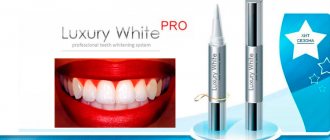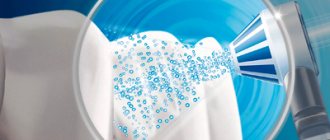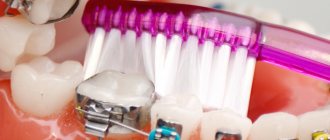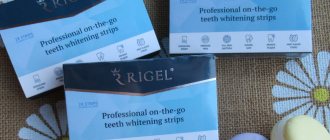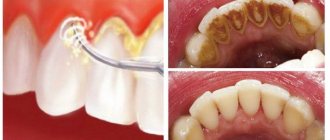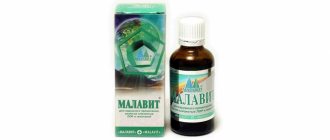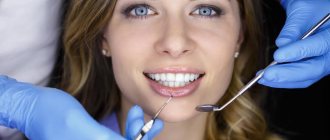26.11.2019
Beekeeping products have long been used in folk medicine to treat diseases of various organs and tissues. Especially notable is bee glue (uza), which, due to its composition rich in useful substances, exhibits natural healing properties. To solve dental problems, propolis is often used for teeth and gums. Based on the bond, medicinal tinctures, lotions, and applications are made.
Use of propolis in dentistry
In dentistry, propolis has found use for dental treatment. Bee glue exhibits bactericidal and antiseptic properties, relieves inflammation, which makes the product indispensable for combating problems in the oral cavity. Uzu is usually used for gingivitis and other inflammatory reactions.
Typical indications for the use of propolis-based products:
- inflammation of the mucous layer of the oral cavity (stomatitis) or gum tissue (periodontitis);
- deep damage to the tissue around the tooth (periodontal disease);
- inflammatory reaction with the formation of purulent secretion, affecting the periosteum, jaw bone (periostitis);
- installation of prostheses;
- healing of the hole after tooth extraction, burns, assistance after excision of the mucous membrane.
Propolis also helps with toothache, bleeding gums, and removes plaque and deposits. Usa medicines are also useful for treating sore throat, tonsillitis, pharyngitis or laryngitis. Bee glue is often prescribed for gumboils (gum abscesses).
Indications for use
Before you start treating your gums with propolis, make sure that this remedy is suitable for you. No matter how miraculous the product may be, its effectiveness is limited. And besides, even the most harmless medicines have contraindications.
It is recommended to use ointments and infusions based on propolis in the following cases:
Propolis has only one contraindication – allergies. Therefore, if you have never used this product before, test the reaction. Anoint a small area of skin on the elbow or wrist with tincture/pure propolis. If the area turns red, a rash appears, or itching begins, then you will have to stop using propolis and other bee products.
How does propolis affect teeth and enamel?
What is the beneficial effect of bee glue on tooth enamel and gums? The explanation lies in the component composition of the bond.
Useful components are obtained from substances extracted from tree buds and enzymes that insects use to process the material. The third part of the bond is beeswax, half is resin. These components help in the formation of a protective film and disinfection.
Favorable action:
- healing of wounds, damage to the mucous membrane;
- bactericidal, destructive effect on Candida fungi;
- pain relief during regular procedures;
- elimination of irritation and signs of inflammation;
- saturation with useful substances;
- formation of a protective layer over gum tissue and tooth enamel;
- activation of regeneration processes;
- removal and prevention of deposits and plaque.
The combination of these healing properties in one product gives bee glue a therapeutic effect in the fight against dental problems. Among the beneficial qualities, slight lightening of the surface of the teeth, the return of a smile and a healthy appearance are noted.
How is propolis used for gums?
To eliminate unpleasant symptoms, propolis is used for gums in the form of an alcohol-based pharmaceutical infusion. However, the product is easy to prepare at home (recipe). The best time for this is the autumn months, since beekeepers collect bee glue in the summer.
When using alcohol, a complete transition of healing substances to liquid occurs. The infusion is also prepared on a water basis, but some of the elements remain in the propolis, since the resins interfere with dissolution.
Ways to use bee glue:
- Chewing. Propolis is used in its pure form or with the addition of other ingredients. It is common to make sweets from cocoa powder, honey, and oza. In this form, propolis helps with toothache, also strengthens enamel, relieves inflammation, and prevents the formation of caries.
- Rinsing. A therapeutic procedure for the purpose of disinfection, pain relief and improvement of the condition of the oral mucosa. The rinse is used in the form of a pure tincture or with the addition of a herbal decoction of mint, sage, and chamomile.
- Baths. The procedure is applied by mixing propolis infusion (2 teaspoons) with a glass of warm water, keeping the liquid in the mouth for 2-3 minutes. Benefits: pain relief, cleansing interdental spaces and gum pockets, giving fresh breath.
- Lotions. A common option is when gum tissue is damaged or the socket bleeds after tooth extraction. Benefits: protection from suppuration, inflammation, healing, reduction of burning, pain. You need to wet a cotton pad with alcohol infusion and apply it to the affected area.
The methods listed above help combat most dental problems. Additional options for use: cauterization of ulcers on the mucous membrane using a cotton swab dipped in the infusion, and adding a propolis solution to toothpaste to strengthen the enamel.
Dental care
Try to take care of your dental health regularly. Be sure to remove plaque, as it is an excellent breeding ground for bacteria. Plaque and tartar can also be removed in the dentist’s office using professional teeth cleaning and the AirFlow method. This significantly improves the health of the oral cavity, restores the natural balance of bacteria, cleans hard-to-reach places, and restores the natural whiteness of teeth. Moreover, such care is absolutely painless for the patient! It is recommended to have professional teeth cleaning once a year.
How to rinse with propolis tincture at home
Propolis tincture for rinsing teeth and gums can be purchased at a pharmacy or prepared independently. A home procedure will require compliance with the rules to obtain a healing effect and safe use.
Rinse instructions:
- Dilute 1 small spoon of propolis tincture with alcohol in a glass of warm water (or 30 drops per 200 ml).
- Place the liquid in your mouth and rinse for 30–40 seconds.
- Spit, repeat the procedure with a new portion of the mixture.
- Rinse for 2–4 minutes.
The number of repetitions to achieve a therapeutic effect is 3–5 times a day. It is better to perform the procedure after eating food, before going to bed. This will help remove food debris and disinfect the surfaces of gum tissue, teeth and mucous membranes.
Water-based tinctures are used more often due to the lack of side effects. The only contraindication is an allergic reaction to uza. For children and pregnant women, only an aqueous solution is recommended. Strengthening the therapeutic effect is obtained by diluting the product in a decoction of oak bark, calendula, and chamomile.
Sometimes an unpleasant, putrid odor emanates from the mouth, for example, with periodontal disease. Rinsing with bee glue infusion will help cope with this problem. For the procedure, you will need to dilute the healing solution (a few drops) with 200 ml of mint infusion. It is better to rinse in the morning and before bed.
Rinse
By rinsing, we remove food debris, pathogenic bacteria, and treat gums locally. You can rinse your mouth with a solution of soda, decoctions and diluted herbal tinctures (chamomile, St. John's wort, nettle, sage, oak bark) or special dental rinses. Read the instructions for use carefully! In folk medicine, hydrogen peroxide, carrot juice, and sauerkraut are used (it must be chewed periodically). Please note that rinsing for many diseases is only an additional, concomitant method of treatment.
Tincture of calamus and propolis
Tincture of calamus and propolis helps with toothache and relieves inflammation. The root of the plant is used for treatment, since this part is saturated with fatty acids, vitamins, minerals, and other elements. Useful properties of the medicinal solution:
- disinfection, astringent, anti-inflammatory effect;
- healing of ulcers, wounds, mucosal damage;
- eliminating bad breath, strengthening tooth enamel;
- fight against bleeding gums;
- pain relief, reduction of tooth sensitivity;
- elimination of suppuration.
Indications for use of calamus with uza: gingivitis, periodontitis, treatment of caries, pulpitis, oral infections. Additional benefits: whitening enamel, eliminating pain, strengthening dentin.
Preparation of tincture:
- Make a product from bee glue - mix 15 g of crushed bond with 500 ml of vodka.
- Prepare an extract from calamus - combine 100 g of crushed rhizome and half a liter of vodka.
- Place the infusion in dark bottles and place in a shaded place for 10–14 days, stirring occasionally.
- Pass through the filter.
- Before use, mix 1 teaspoon of propolis tincture and 1 tablespoon of calamus root extract.
To perform the procedure, take 2 large spoons of healing liquid and rinse for 2-3 minutes. The pain goes away after 5 days with regular use. To eliminate bitterness, you can dilute the solution with 1 spoon of water.
An important rule is that after rinsing, the medicine must be spat out and not swallowed, due to the accumulation of pathogenic bacteria in the liquid.
Propolis tincture for the treatment of dental cysts
The cyst usually appears between the jawbone and the root of the tooth due to infection. Inside the formation is pus or cystic fluid.
An infusion made from bee glue with alcohol is used as an adjuvant therapy due to its ability to eliminate inflammation and antibacterial action. However, natural medicine helps only in the early stages of cyst development with mandatory supervision by a dentist.
Is it possible to kill the dental nerve with propolis?
Irritation or inflammation of the dental nerve is accompanied by a painful sensation that is difficult to get rid of. If you cannot see a dentist, you will need a way to relieve the pain.
Products based on bee glue are unable to kill the nerve. The only benefit from using propolis medications is mild pain relief. However, the tincture often has the opposite effect. When liquid gets into the tooth canal, the pain only intensifies. The best solution is to see a dentist.
Contraindications and possible harm
The healing properties of bee glue do not eliminate the presence of contraindications. Restrictions include:
- allergic reaction;
- diseases of the liver, gall bladder, kidneys, pancreas;
- bronchial asthma, diathesis.
Propolis is not harmful specifically to teeth. Possible side effects are observed with an allergic reaction (itching, redness, burning and fever). If the concentration of the tincture is exceeded, a burn to the gums or mucous membrane is possible.
Bee glue is a common remedy for treating oral problems. Main properties: bactericidal, relieves inflammation and pain. Saturation with a large number of useful substances helps to strengthen, slightly lighten tooth enamel, and eliminate bleeding gums.
Category Hygiene Published by Mister stomatolog
Preventive actions
Most gum problems are caused by poor oral hygiene. To avoid this trouble, try to follow absolutely all the rules:
- Teeth should be brushed twice a day.
- After cleaning the units, pay attention to the gums. Use a soft brush to clean the mucous membrane.
- Don't forget about mouthwash.
- After eating, floss.
- Buy an irrigator and massage your gums every day.
